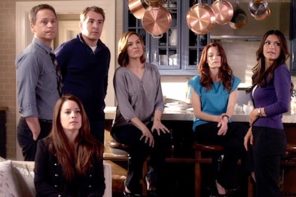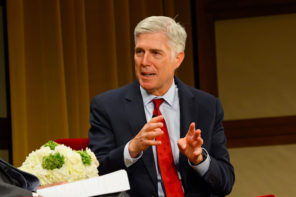A marriage equality bill moved toward a vote in the Illinois House on Tuesday night on a 6-5 vote in the House Executive Committee. One committee member, Rep. Luis Arroyo, announced that he was voting to allow the bill a floor vote even though he said he expected to vote against the bill on the floor based on his religious beliefs.
Religious figures testified both for and against the Religious Freedom and Marriage Equality Act, which sponsor Rep. Greg Harris noted exempts ministers from having to solemnize marriages and includes exemptions for parish halls and fellowship halls.
Testifying for the bill were two African American pastors, Rev. B Herbert Martin and Rev. Otis Moss III. Martin said that he had lived through a time when the laws embraced the “separate but equal” philosophy and said, “We are better than that.” Moss spoke on behalf of church-state separation, saying, “we live our faith, we do not legislate our faith.” He drew a distinction between the responsibility of churches to preach the love of God and the responsibility of civil authorities to protect civil rights. Moss ended with a flourish, referring to the “Cathedral of Democracy” and urging legislators to draw from the “shared sacred text” of the Constitution and act to ensure that all citizens are treated equally.
Also testifying on behalf of the bill were a same-sex couple raising children, a child development expert, and a representative of the Illinois Bar Association. In a discussion of research on parenting and child development, Dr. Laura Berk of Illinois State University characterized the notorious Regnerus study as methodologically flawed and arriving at invalid conclusions.
Kicking off the testimony in opposition to the bill was Jennifer Robeck Morse of the Ruth Institute, a project of the National Organization for Marriage. Morse invoked Regnerus, along with Abraham Lincoln, in urging legislators to reject the bill, saying that “so-called marriage equality” would create “structural injustices” for children.
Also testifying was Linda Jernigan of Rescue Ministries International Church, who described herself as someone who “practiced homosexuality” for 20 years, raising two boys with another women, but who said she is “not a homosexual any more.” God, she said, created marriage and converted her out of homosexuality. She said civil rights do not apply to a “transformable behavior” like homosexuality. Another pastor told legislators that they do not have the authority to change God’s definition of marriage.
Kellie Fiedorek of the Alliance Defending Freedom (formerly the Alliance Defense Fund) reprised arguments she made at a recent Family Research Council event, characterizing the bill as an effort to expand “sexual liberty” at the expense of religious liberty. She said the bill’s lack of provisions to allow social service agencies, judges and clerks, and individual business owners to discriminate against gay couples was evidence of an “intent to legislative prejudice” against people who have religious objections to same-sex marriage.
The bill now moves to the floor of the House. The state Senate passed the bill on Valentine’s Day and Gov. Pat Quinn is ready to sign it into law. See a synopsis of the hearing from Windy City Media.




